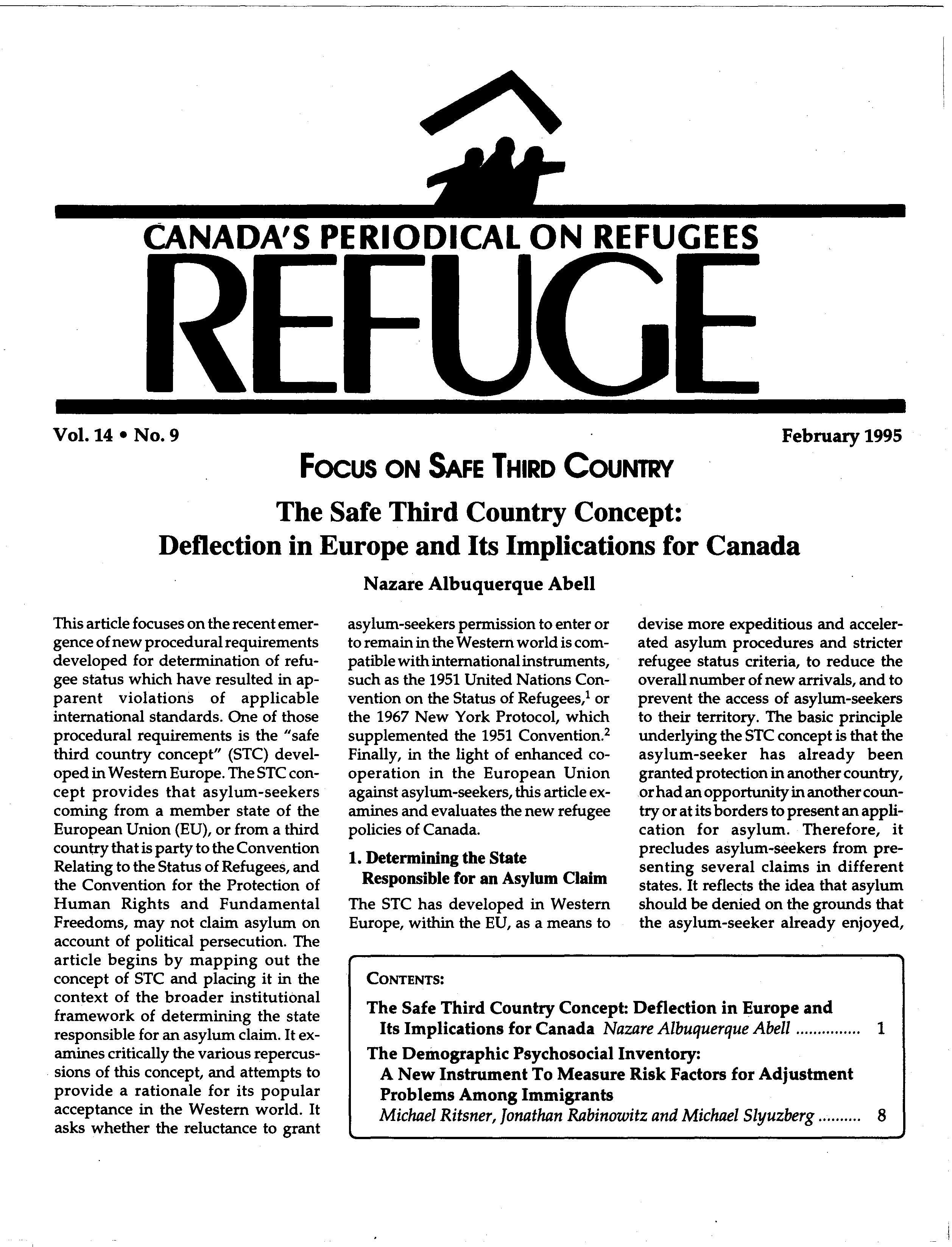The Demographic Psychosocial Inventory: A New Instrument to Measure Risk Factors for Adjustment Problems Among Immigrants
DOI:
https://doi.org/10.25071/1920-7336.21852Keywords:
adjustment, immigrants, psychological risk factors, study, mental health, resilience, Demographic Psychosocial inventoryAbstract
Objective-The purpose of this study was to develop and test the Demographic Psychosocial Inventory (DPSI), a self-report questionnaire that assesses demographic and background characteristics of immigrants, and psychosocial risk factors of demoralization. Method-Based on a review of instruments used to study immigrants, and researchers' experience in this area, an 85-item questionnaire was developed that includes 10 scales and three general indices. Subjects are asked to indicate their level of satisfaction with various aspects of their lives, their reasons for immigration, and problems they had encountered since they immigrated. Results-DPSI (Demographic Psychological Inventory) was tested on 1,200 adult immigrants who came to Israel from the former USSR since 1989. The reliability of the scales and general indices was generally high as measured by Cronbaeh's Alpha. For one general index and two scales it was above .78, for one general index and two scales it was between .60 and .73, for one general index and two scales between.41 and .55, and for one scale .23. The general indices were highly correlated with the Psychiatric Epidemiology Research Interview Demoralization Scale (PERI-D) and the Brief Symptom Inventory (BSI). The results suggest that the greatest risk factors of demoralization are a greater number of distress sources, difficulty in dealing with conflict, greater discrepancy between actual difficulties encountered and those expected, and more reasons for immigration. The single most important variable in predicting a demoralization case was the number of distress sources. We developed DPSI cutting points for caseness based on comparisons to BSI and PERI-D. For the BSI, DPSI cutting points are .44 for males, and .48 for females. These cutting points recognize about 61% of those who are cases according to BSI, and about 72% of those who are not cases according to BSI. For the PERI-D, DPSI cutting points for caseness are .42 for males and .44 for females. These cutting points recognize about 63% of those who are demoralized according to PERI-D and about 68% of those who are not demoralized according to PERI-D. DPSI tends to recognize slightly more cases as being at risk of demoralization than those who are demoralized according to PERI-D, and slightly less than those identified as cases according to BSI. Conclusions-DPSI is a promising instrument for gathering demographic and background characteristics of immigrants, and for studying psychosocial risk factors for development of demoralization. DPSI is available in English, Hebrew, and Russian.Metrics
Downloads
Published
How to Cite
Issue
Section
License
Copyright (c) 1995 Michael Ritsner, Jonathan Rabinowitz, Michael Slyuzberg

This work is licensed under a Creative Commons Attribution-NonCommercial 4.0 International License.
Refuge authors retain the copyright over their work, and license it to the general public under the Creative Commons Attribution-Non Commercial License International (CC BY-NC 4.0). This license allows for non-commercial use, reproduction and adaption of the material in any medium or format, with proper attribution. For general information on Creative Commons licences, visit the Creative Commons site. For the CC BY-NC 4.0 license, review the human readable summary.







